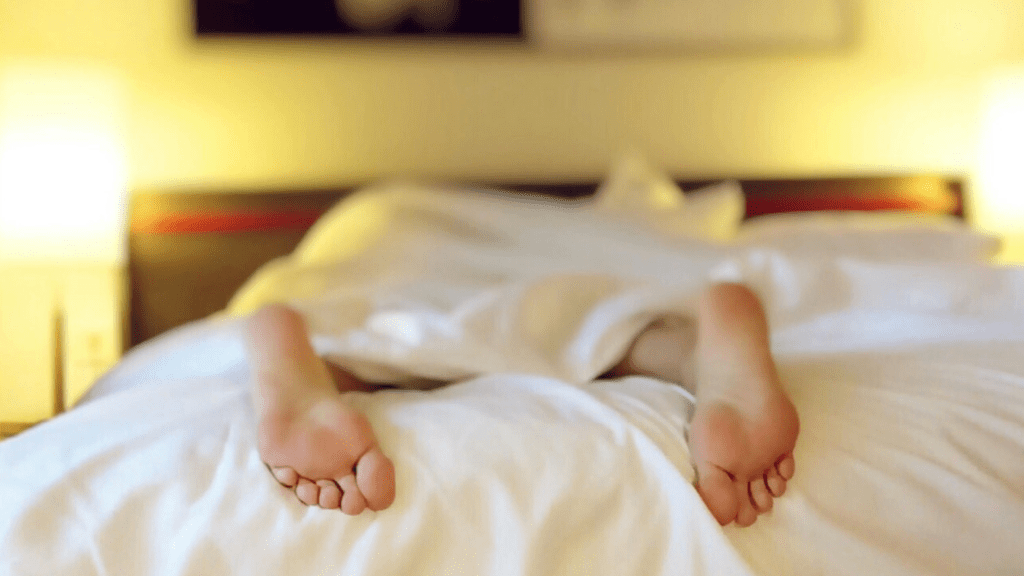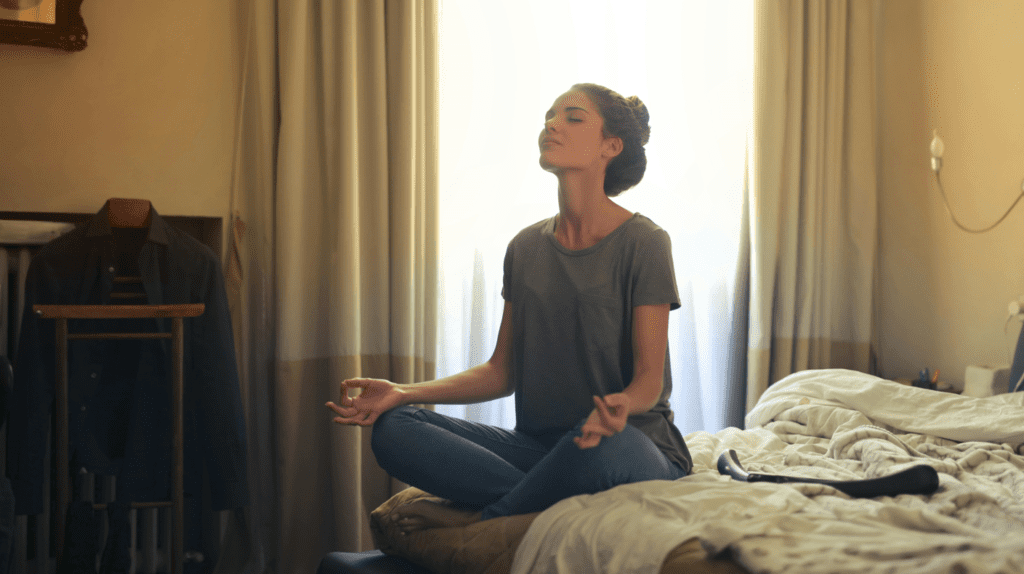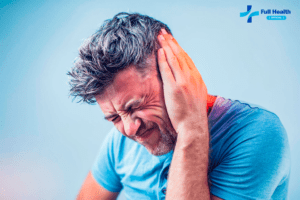Imagine yourself lying in bed, eyes fixed on the ceiling, your mind spinning between worries and thoughts that seem endless. Hours pass, sleep doesn’t come, and you begin to feel the weight of accumulated fatigue, wondering, “Why can’t I sleep?” For many, this is the reality of insomnia, a sleep disorder that goes beyond a restless night and can deeply impact physical and mental health.
Insomnia doesn’t discriminate; it can affect anyone, at any time. Whether it’s a short period of sleepless nights due to daily stress or an ongoing battle that seems never-ending, insomnia transforms the life of those who face it. More than just a difficulty in sleeping, insomnia can be a reflection of deeper issues, from emotional problems to underlying health conditions.
In this article, we will explore what insomnia is, its causes, symptoms, and most importantly, its treatment. Our mission is to provide you with the necessary information to understand this disorder and find the path to more peaceful and restorative nights. After all, we all deserve the rest that prepares us to face the challenges of each new day.

📜Contents
What is Insomnia? 🤔
Definition and Types of Insomnia (Sleep Disorder)
Insomnia is a sleep disorder that affects millions of people worldwide, characterized by difficulty falling asleep or staying asleep throughout the night. Insomnia is not just a bad night’s sleep; it’s a condition that can extend over long periods, severely impairing the quality of life of the affected person.
It’s important to understand what causes insomnia and that it doesn’t manifest the same way in everyone. Therefore, experts categorize insomnia into two main types:
- Acute Insomnia: This is the most common and temporary form of insomnia. It usually occurs in response to stressful events, such as the loss of a loved one, work problems, or significant life changes. Acute insomnia typically lasts a few days or weeks and often resolves on its own once the stressor is resolved or the person adapts to the new situation.
- Chronic Insomnia: Unlike acute insomnia, chronic insomnia is a persistent condition that can last for months or even years. To be diagnosed with chronic insomnia, a person must have difficulty sleeping at least three nights per week for three months or more. This type of insomnia can have more complex causes, such as mental health issues, underlying medical conditions, or even inadequate lifestyle habits. Chronic insomnia can create a vicious cycle, where worry about sleep further worsens the difficulty in sleeping.
How Insomnia Affects Health
Insomnia doesn’t just affect sleep; it has profound consequences for physical and mental health. When a person suffers from insomnia, their body and mind cannot rest and recover properly during the night. Lack of sleep affects almost every system in the body. For instance, the immune system becomes weakened, making the person more vulnerable to infections and illnesses.
Additionally, insomnia is associated with an increased risk of developing chronic diseases such as hypertension, diabetes, and cardiovascular diseases.
Mentally, insomnia can cause or worsen mental health problems like anxiety and depression. Lack of adequate sleep affects the brain’s ability to process emotions and cope with stress, which can lead to a cycle of interlinked sleep and mental health issues. People with insomnia often report difficulties in concentration, impaired memory, irritability, and a constant feeling of fatigue that affects their ability to perform daily tasks and enjoy life.

What Causes Insomnia? 📌
Psychological and Emotional Factors
Insomnia is often deeply connected to a person’s emotional and psychological state. Various factors can trigger or worsen insomnia, and understanding these causes is crucial for effectively treating the problem.
- Stress: Stress is one of the biggest culprits of insomnia. When we’re stressed, our body goes into a state of alertness, releasing hormones like cortisol, which keep us awake and ready to face challenges. However, when stress becomes chronic, it can seriously interfere with the ability to relax and fall asleep. Situations such as financial problems, family conflicts, or work pressures can keep our minds constantly active, making it difficult to disengage for sleep.
- Anxiety: Anxiety is another major sleep disruptor. Anxious people tend to worry excessively, and these thoughts can intensify at night when the environment is quieter, and the mind starts replaying the day’s events or anticipating future situations. This state of mental alertness makes relaxation difficult, causing a person to take hours to fall asleep or wake up frequently during the night.
- Depression: Insomnia and depression often go hand in hand. Depression can alter levels of neurotransmitters in the brain, which are essential for regulating sleep. Moreover, people with depression frequently experience feelings of hopelessness or deep sadness, which can keep them awake at night. Interestingly, insomnia can also be a contributing factor to the development of depression, creating a vicious cycle that is difficult to break.
Environmental Factors
The environment in which we sleep has a significant impact on sleep quality. Factors like noise and lighting may seem trivial but can be major obstacles to a good night’s sleep.
Noise: Even if you’re not consciously aware of it, constant or sudden noises can interrupt your sleep. Sounds like traffic, barking dogs, snoring partners, or even the hum of electronics can cause you to wake up several times during the night. These awakenings, even if brief, prevent you from reaching the deeper stages of sleep that are essential for physical and mental recovery.
Inadequate Lighting: Light, especially blue light emitted by electronic devices, can trick your brain into thinking it’s still daytime. This happens because light suppresses the production of melatonin, the hormone that helps regulate sleep. Sleeping in a well-lit environment or using electronic devices before bed can make it difficult to fall asleep and reduce sleep quality.

Lifestyle Habits
Our daily habits play a crucial role in sleep quality. Some everyday practices may seem harmless but could be the real causes of insomnia.
- Excessive Use of Electronics: Prolonged exposure to electronic devices before bed can negatively impact sleep. Blue light from screens can delay the release of melatonin, making it harder to fall asleep. Additionally, stimulating content such as news, social media, or games can keep the brain in a state of alertness, making it difficult to relax.
- Caffeine and Alcohol Consumption: Caffeine is a stimulant that can stay in the body for several hours, keeping you awake when you should be sleeping. Drinking coffee, sodas, or energy drinks late in the day can make it hard to fall asleep. Alcohol, on the other hand, may seem relaxing at first but interferes with sleep cycles, causing frequent awakenings during the night.
Underlying Medical Conditions 🧬
Insomnia can be a symptom of medical conditions that require specific attention and treatment.
- Sleep Apnea: Sleep apnea is a condition where breathing is repeatedly interrupted during sleep, usually due to a blockage of the airways. These interruptions cause frequent awakenings, often without the person realizing it. As a result, sleep is fragmented and unrestorative, leading to a constant feeling of fatigue during the day.
- Restless Legs Syndrome: This neurological condition causes an uncomfortable sensation in the legs and an uncontrollable urge to move them, especially at night. This discomfort can make it hard to fall asleep and cause frequent awakenings, impairing sleep quality.

Symptoms and Diagnosis of Insomnia 🤒
Main Symptoms of Insomnia
Recognizing the symptoms of insomnia is the first step towards seeking help, treating this sleep disorder, and improving sleep quality.
- Difficulty falling asleep: One of the most common symptoms of insomnia is difficulty falling asleep. Even when you’re exhausted, you may feel like your mind is “on,” running through thoughts and worries, preventing the relaxation needed to fall asleep.
- Frequent waking during the night: Another symptom is waking up several times during the night, often for no apparent reason. These awakenings disrupt sleep cycles and make it difficult to return to the deep sleep essential for body and mind recovery.
When to Seek Medical Help?
If you’re experiencing symptoms of insomnia that persist for more than three weeks, or if insomnia is significantly interfering with your daily life, it’s essential to seek medical help. A healthcare professional can assess your condition and work with you to identify underlying causes and propose a personalized treatment plan.
Diagnostic Methods
To diagnose insomnia and its possible causes, doctors may use several methods:
- Polysomnography: This test is conducted in a sleep laboratory where various body functions are monitored while you sleep, including brain activity, eye movements, heart rate, and breathing. Polysomnography is especially useful for identifying sleep disorders like sleep apnea.
- Sleep diary: Keeping a sleep diary can be a powerful tool for identifying patterns and factors contributing to insomnia. In this diary, you record your bedtime, how long it takes to fall asleep, night awakenings, and sleep quality upon waking. These records help the doctor better understand your sleep routine and identify potential triggers for insomnia.

Natural Treatments for Insomnia 👨⚕️
Natural and Alternative Options
Many people seek natural and alternative options to complement their efforts in improving sleep.
- Melatonin: Melatonin is a natural hormone produced by the body that helps regulate the sleep cycle. Melatonin supplements can be helpful for people who have trouble falling asleep, especially those with irregular circadian rhythms, like night workers or those suffering from jet lag. However, it’s important to use melatonin under medical guidance, as improper use can interfere with the body’s natural hormone production.
- Herbal tea: Herbal teas, such as chamomile, valerian, and passionflower, have calming properties and can help relax before bed. These teas are a natural and non-invasive option to improve sleep quality. However, it’s important not to consume large amounts of liquids before bed to avoid nighttime awakenings.
- Acupuncture: Acupuncture, a practice of traditional Chinese medicine, involves inserting thin needles into specific points on the body to promote balance and relieve stress. Studies suggest that acupuncture can be effective in treating insomnia, helping to regulate sleep cycles and improve sleep quality.
100% Natural Supplement 🍃
When it comes to taking care of our health holistically, natural supplements play a key role in helping treat disorders such as insomnia and chronic fatigue. These supplements are formulated with ingredients that nature offers us, carefully selected to support the optimal functioning of our body and mind. They not only help relieve immediate symptoms but also contribute to overall well-being.
A perfect example is Chrono Boost, a 3-in-1 natural formula designed to care for your sleep, mind, and energy. With a powerful combination of balanced ingredients, Chrono Boost helps detoxify the brain, promoting peaceful and restorative nights of sleep, while also activating your body’s natural ability to generate energy throughout the day.
Furthermore, all Chrono Boost components are handled according to strict organic standards and are non-GMO, vegan, and gluten-free, ensuring a healthy and safe solution. Opting for natural supplements like Chrono Boost can be a smart choice for those seeking to improve their health.
>> Learn More About Chrono Boost <<
Insomnia Prevention 🛡️
Lifestyle Changes
Small lifestyle changes can make a big difference in sleep quality.
- Sleep hygiene: Sleep hygiene refers to practices that promote better sleep quality. This includes establishing regular bedtime and wake-up times, creating a sleep-friendly environment (dark, quiet, and comfortable), and avoiding caffeine, alcohol, and heavy meals before bed. Sleep hygiene also involves limiting the use of electronics before bed and developing a relaxing routine, such as reading a book or taking a warm bath.
- Relaxation techniques: Stress and anxiety are major enemies of sleep, but relaxation techniques can help combat them. Practices such as meditation, deep breathing, yoga, and progressive muscle relaxation help calm the mind and body, preparing you for a restful night’s sleep.

Long-Term Impacts of Untreated Insomnia ❤️🩹
Effects on Mental Health
Chronic insomnia can have devastating impacts on mental health. Sleep deprivation impairs emotional regulation, increasing the risk of mental disorders such as depression, anxiety, and bipolar disorder. Moreover, insomnia can worsen existing mental health conditions, creating a vicious cycle where lack of sleep worsens mental health, and mental health problems, in turn, worsen insomnia.
Effects on Physical Health
- Cardiovascular problems: Chronic insomnia increases the risk of hypertension, heart attacks, and strokes. This occurs because prolonged sleep deprivation keeps the body in a constant state of stress, which raises blood pressure and puts more strain on the heart.
- Weakened immune system: Sleep is essential for immune function. During sleep, the body produces cytokines, proteins that help fight infections and inflammation. When sleep is insufficient, the production of these cytokines is reduced, making the body more vulnerable to infections and slowing the recovery from illnesses.

Conclusion 💥
Insomnia (Sleep Disorder) is more than just a simple difficulty falling a sleep, it’s a challenge that can affect every aspect of your life. From mental health to physical well-being, the impact of sleepless nights can be profound and long-lasting. However, understanding the causes, recognizing the symptoms, and exploring treatment options are crucial steps to regain control over your sleep and, consequently, your quality of life.
Dealing with insomnia requires patience and often a multifaceted approach. Whether it’s adjusting daily habits, seeking professional support, or exploring natural treatments, the path to restorative sleep can be found. Remember that you are not alone on this journey; many people face the same challenge, and resources are available to help.
By prioritizing sleep, you are not only investing in restful nights but also in more productive and happier days. So, if you find yourself struggling with insomnia, consider this an opportunity to make positive changes that will benefit your health and well-being in the long term. After all, a good night’s sleep is one of the pillars of a balanced and healthy life.
Also Read – More Posts 💡






[…] Insomnia: What it is, Causes, Symptoms and Treatments […]
[…] Insomnia: What it is, Causes, Symptoms and Treatments […]
[…] Insomnia: What it is, Causes, Symptoms and Treatments […]
[…] Insomnia: What it is, Causes, Symptoms and Treatments […]
[…] Insomnia: What it is, Causes, Symptoms and Treatments ✅ […]